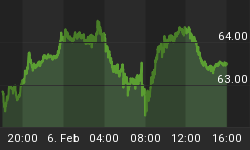Data releases from Germany and Belgium over the past twenty-four hours once again bode well for the strength of the Euro-zone economy heading toward the second half of the year, and confirm expectations of further interest rate hikes from the ECB. Less clear, however, is the outlook for 2007.
The German Ifo business sentiment index eased only a tad from last month's 15-year peak, with the main business climate index reaching a still-high 105.6 (105.9 in April). The expectations sub-index eased back further, however, to 104.0 from 105.5 in April, suggesting expectations for six months from now are turning a little more cautious. The manufacturing component slipped from 20.7 to 19.4 but companies remained bullish about their export prospects. Neither higher oil prices nor a rising euro have dented Germany's robust export machine yet. However, sentiment in the retailing sector remained weak, with the retailing component sliding to -5.7 from -5.2 the month before.

Added to yesterday's first quarter GDP data, the Ifo reinforces hopes for a solid economic recovery for Germany this year. The GDP breakdown revealed a surprisingly-strong pick up in private consumption in the first quarter, up 0.6% over Q4 2005 and contributing 0.4 percentage point to overall growth. Net foreign trade added another 0.3 percentage point, while bad weather led to a drop in construction such that Q1 GDP growth came in at 0.37% on the quarter (up from just 0.01% in Q4). With the weather and hence the construction sector improving, odds are that Q2 will see even better growth. Interestingly, French household spending rebounded in April, while Italian consumer confidence rose in May - adding to the view that the Euro-zone recovery is becoming more broad based.

Meanwhile, there appears to be good news on the inflation front in Germany, with today's preliminary data from four of the German states showing consumer price increases between 0.1% and 0.3% on the month, suggesting an annual inflation rate for all of Germany that is lower than last month's 2.3% and some easing in Euro-zone inflation from the 2.4% seen in April.

Upcoming German data include the preliminary all-German CPI data tomorrow, the GfK consumer sentiment survey on Friday 26th, and unemployment data for May on the 31st. Euro-zone flash estimate May CPI also is due May 31.
In Belgium the business confidence index for May fell rather more than expected to 2.0 from last month's near-six-year high of 4.3. (Recall that, thanks to Belgium's strong trade ties with its neighbors, this index is a leading indicator - about six months out - for GDP growth in the Euro-zone as a whole.) The index has climbed fairly steadily since Q2 2005, and jumped into positive territory in Q1. In marked contrast with last month, the retail sub-index shot up to +0.3 (-8.2 in April) while the manufacturing sub-index slid to +1.4 (+6.4 the month before) and construction was more-or-less stable at +6.4 (versus +7.0). Within the manufacturing sub-index the component on the trend in domestic orders dropped from +8 last month to -3 and the component on the export order trend plummeted from +18 to 0. Within the retail trade sub-index, however, the component on the trend in domestic demand improved from -7 to -3, while the trend for foreign orders recovered to +1 (-11 in April). This suggests that the retail sector is becoming more upbeat, even as manufacturers start to feel the pinch of high oil prices and a stronger euro.

So, the German economic recovery is becoming more broad-based, but German companies are possibly starting to get a little more cautious about the outlook - not surprising, given that the planned three percentage point increase in German VAT next year could hit domestic demand. The BNB survey also points to a broadening of the Euro-zone economic recovery over the coming months, but some uncertainty about the outlook heading into 2007.
Meanwhile, it is apparent that the ECB will be hiking interest rates by another 25bp, to 2.75%, on June 8. Trichet has started using the V-word again - i.e., "vigilance" - to describe the central bank's stance regarding inflationary risks, as did the bank's May bulletin. And, with the data pointing to a broader and stronger recovery in Germany and across the Euro-zone this year, further rate hikes can be expected in the second half. This will help to underpin the euro, which has already risen more than 7% in nominal terms against the US$ since the start of the year.















